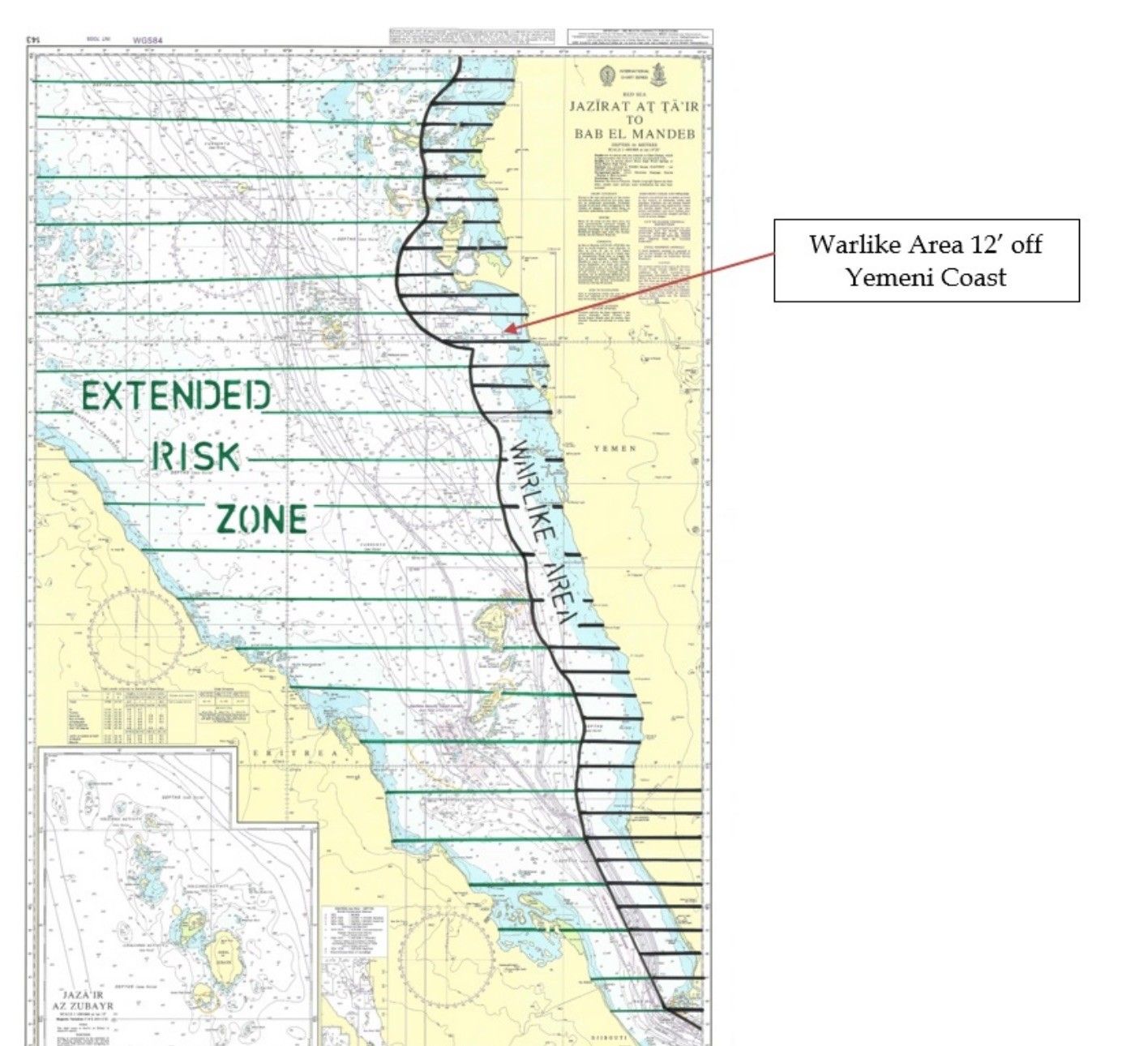You are here
POEA adopts resolution for better benefits, pay for seafarers in 'war-like' areas
POEA adopts resolution for better benefits, pay for seafarers in 'war-like' areas
Kaycee Valmonte - April 4, 2022
Philstar.com screenshot of IBF Warlike and High Risk Areas, featuring the map on the area 12 nautical miles off the Yemeni Mainland coast.
MANILA, Philippines — The Philippine Overseas Employment Administration is adopting an amended list of areas that have been flagged as high-risk or dangerous to seafarers, which would entitle them to premium pay when sailing or docking into those areas.
The areas were negotiated by social partners of the International Bargaining Forum, which bridges discussions between unions of seafarers and international maritime employers.
Filipino crewmen sailing into the five ports and areas in the list adopted by POEA will be entitled to additional pay, among other benefits. The Philippines topped the UN Conference on Trade and Development’s list of “largest seafarer-supply countries” in 2021.
According to a copy of its governing board resolution published online, the provisions were effective beginning last month, March 1, despite the resolution itself being dated April 1.
'Warlike Operations Areas'
The IBF designated all ports of Ukraine as a "Warlike Operations Area." It said the designation will be in effect from the beginning of March until March 29 "unless extended by mutual consent."
Meanwhile, Yemeni territorial waters up to 12 nautical miles (nm) from Yemen’s border with Saudi Arabia in the Red Sea are also tagged as an “IBF Warlike Operations Area” along with the Yemen and Oman border in the Gulf of Aden, except the Maritime Security Transit Corridor in the Red Sea.
"This Warlike Area applies to all vessels, whether underway or not, including all vessels at anchor and berthed ‘all fast’ within the area," the resolution stated under its note on both Ukraine and Yemen.
Vessels docked in all the ports in Ukraine and the stated Yemeni territorial waters are recommended to operate at International Ship and Port Facility Security Code level 3, which the International Maritime Organization said means the area has a “probable or imminent risk of a security incident.”
Seafarers will be entitled to a bonus equal to the basic wage during their period of transit or stay within the area if it takes five days or longer.
The resolution noted that sailors have the right to refuse sailing, "with repatriation at company’s cost and compensation equal to two-month’s basic wage." The seafarers will also have doubled compensation for death or disability.
It has been a month since Russia invaded Ukraine and, over the weekend, Ukraine's Black Sea port of Odessa was the target of air strikes.
The Department of Foreign Affairs in its update last month said the evacuation of seafarers in Mykolaiv, a coastal city near the Black Sea, “has become more challenging with heavy fighting” surrounding it. The department has repatriated over 350 seafarers from Ukraine.
The DFA has also raised its crisis alert level in Ukraine to Alert Level 4, which also signaled the mandatory evacuation of all Filipinos at government expense.
Meanwhile, Yemen’s government, supported by a Saudi Arabia-led coalition, has been in conflict with Iran-backed Huthi rebels since 2015.
According to a report by the BBC, the war started when Yemen’s authoritarian president Ali Abdullah Saleh was ousted and his successor, Abdrabbuh Mansour Hadi, was "overwhelmed" by the problems the country was facing. This allowed Huthi rebels to take opportunity and start seizing control of some of Yemen’s provinces. The BBC said Saudi Arabia feared that Yemen would turn into a “satellite” of rival Iran.
READ: Philippine Embassy in Saudi Arabia says no Filipino nationals harmed in Huthi attacks last week
High-Risk Areas
Meanwhile, the POEA governing board also classified the Gulf of Aden, the Gulf of Guinea, and their respective nearby areas as “High Risk Areas,” which span:
The Gulf of Aden and 12 nm off Somali East Coast, except the International Recommended Transit Corridor;
and the Gulf of Guinea, territorial waters within 12 nm of its ports and the inland waterways of Nigeria and Benin, excluding the Maritime Exclusion Zone, the Secure Anchorage Area, and the Ship-to-Ship Zone already treated as IBF Extended Risk Zones.
Seafarers sailing along the Gulf of Aden and its nearby areas would be given a bonus equal to their basic wage, which will be paid for their actual duration of stay or transit. They will be entitled to double the cost of compensation for death and disability.
Those who want to be repatriated will be evacuated from the ship at the cost of the company. The recommended security level is to increase its onboard Best Management Practices level.
Meanwhile, seafarers in the Gulf of Guinea and stated areas will be entitled to a bonus equal to basic wage, payable for at least five days or longer. They also have doubled compensation for death and disability.
Should they wish to be repatriated, the cost will be shouldered by the company. Sailors will be compensated with two-month’s worth of basic wage. The IBF also recommended that the ships operate at the ISPS Level 3.
The IBF tagged the West Indian Ocean and the Red Sea, up to the Yemen-Saudi Arabian border and including the Maritime Security Transit Corridor as an “Extended Risk Zone”
Sailors in this area will be entitled to a bonus in the amount of a basic wage “payable only on the day the vessel is attacked.” They will also be given doubled compensation should they encounter death or be disabled on the day of the attack.
“Bonuses and compensations are not payable when the vessel is anchored or berthed in secure ports, except in Somalia and Yemen,” the resolution read.

